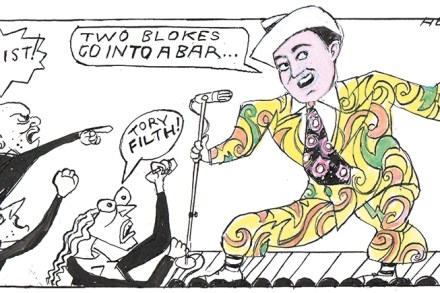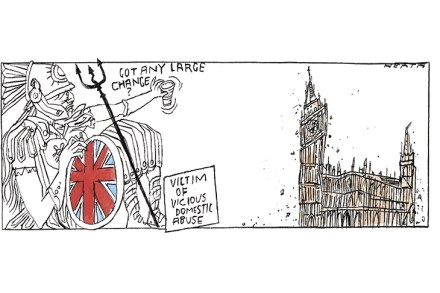The bluff and bluster of Boris’s bland boy Brexiteers
From the balcony where I take my daily exercise there is a view of the commercial centre of London that is so susceptible to changes of the light you feel you are in a different city every day. When the dying sun is reflected in its glass towers, the city looks like Las Vegas burning. Under a dark sky it could be Pittsburgh. The other day was so louring that I saw Moscow. ‘I’m looking at the Kremlin,’ I shouted in to my wife. She’s been worrying about me. She thinks it’s time I relaxed the promise I made myself not to go out until the virus has gone and




















